It’s a well-known fact that plants help clean the air, as they remove harmful toxins from our living spaces. In the late 1980’s, NASA conducted a Clean Air Study examining how houseplants purify our air and the effectiveness of certain varieties. Over 30 years later, this study is still relevant and referenced in many articles and studies. Below we list a few accessible and easy-to-maintain plants that will help cleanse the air we breathe on a day-to-day basis.
But wait a minute. Does the air we breathe inside our homes really need to be cleaned? This may come as a surprise to some, but our homes are filled with chemicals and toxins, harming our general health and causing symptoms like headaches, skin or eye irritations, allergies and even contribute to common colds and other illnesses. With Canadians spending an average of 90% of their time indoors, the indoor air we breathe is more important than ever.
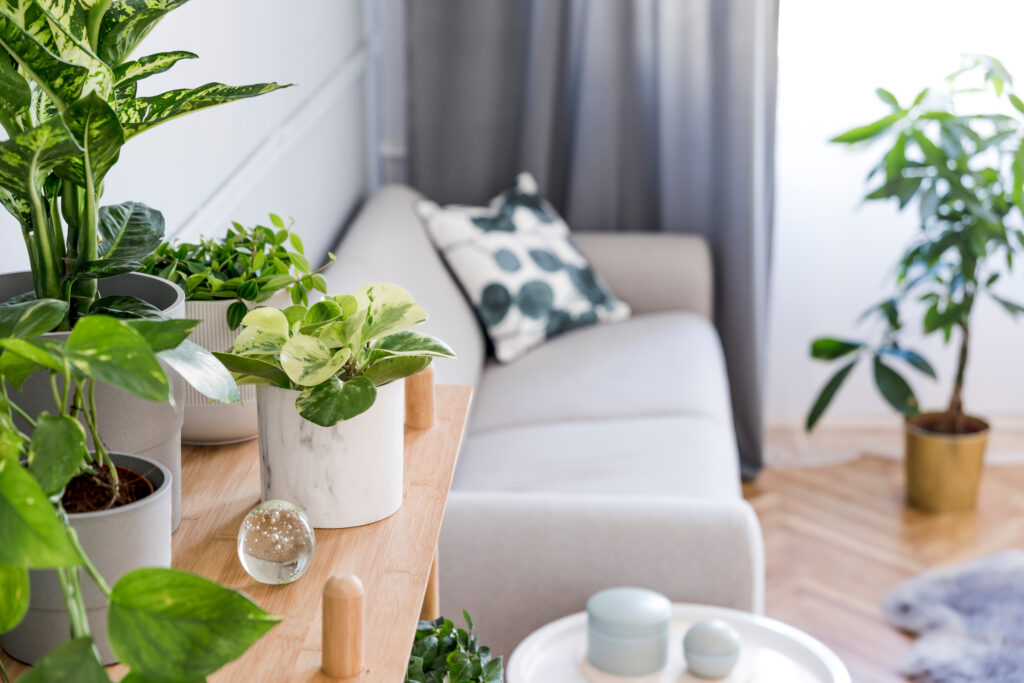
What’s in the air we breathe?
There are many household products and factors impacting our indoor air quality:
Household Cleaners and Chemicals: These products are often toxic to us (and our pets). Though they smell great, there are many different fragrances added to some products, increasing the amount of ingredients and chemicals. Consider using all-natural cleaning products to avoid this.
Mold, Mildew and Moisture: There are many ways mold and mildew build up in our home, including in moist areas such as our bathrooms and kitchens. Regularly cleaning and proper ventilation can help.
Cigarette Smoke: This one might be obvious but smoking indoors is definitely harmful to our health and releases harmful toxins into the air we breathe.
Scented Fragrances: Similar to household cleaners, scented products such as air fresheners, mass-produced candles, laundry detergents can fill the air with chemicals, especially if used frequently.
For more information on household air quality, click here.
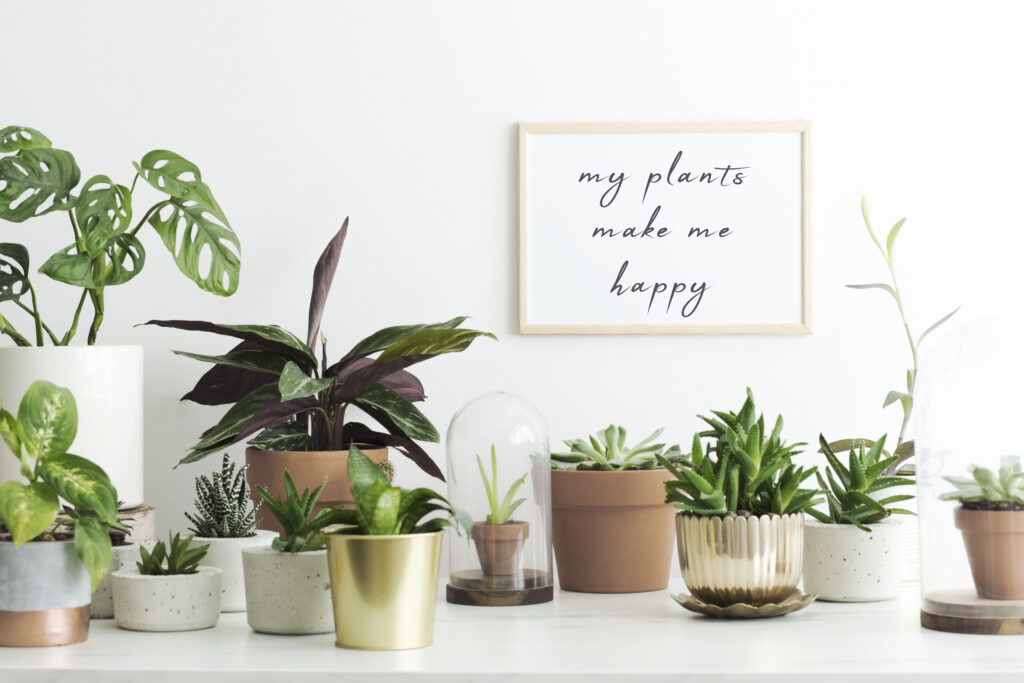
Helpful Plants That Clean the Air
Now that we know a few factors that impact indoor air quality, take a look at these helpful plants that can help clean the air in our homes. Many of these plants are easily accessible at local florists, grocery stores or nurseries and easy to maintain.
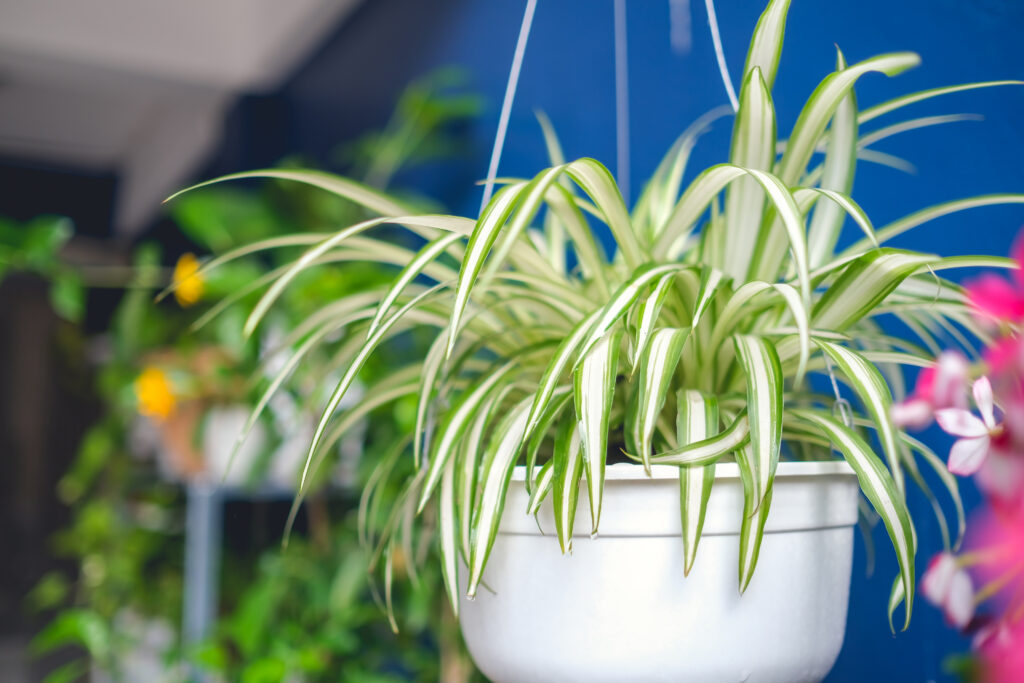
Spider Plant (Chlorophytum Comosum)
In the NASA Clean Air Study, spider plants were shown to remove around 90% of formaldehyde from homes. This plant is incredibly effective and safe for our pets.
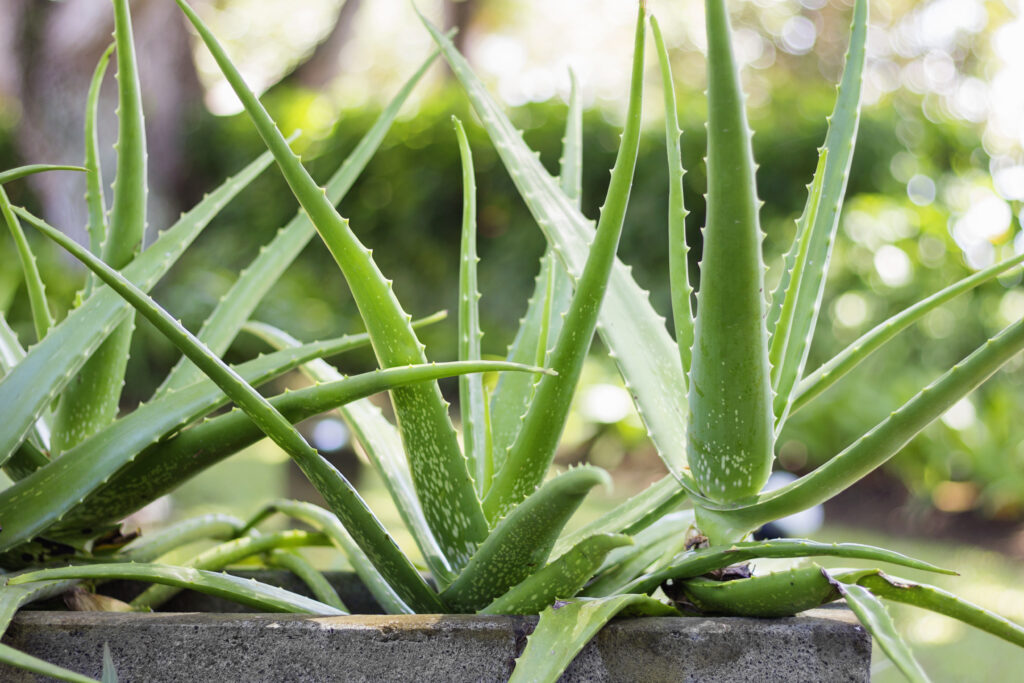
Aloe Vera (Aloe barbadensis miller)
This common houseplant is good for more than just your average sunburn. It releases oxygen while absorbing carbon dioxide at night while we sleep, leading to better air quality and contributing to a good night’s rest.
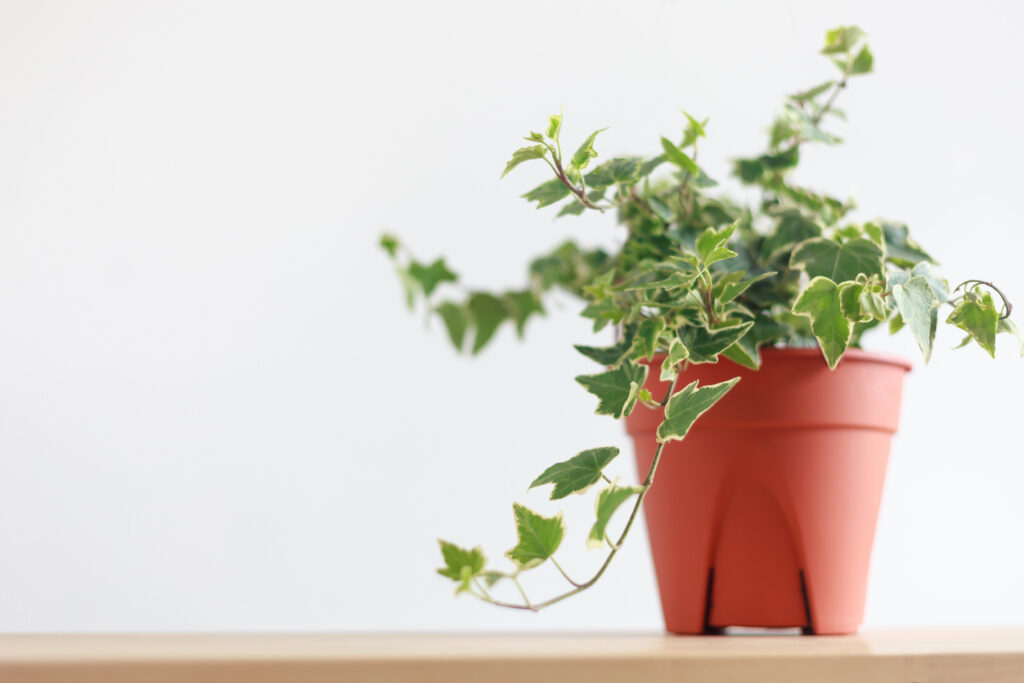
English Ivy (Hedera Helix)
Beautiful and adaptable, this easy-to-cultivate plant is known to remove harmful toxins like formaldehyde and benzene from the air, while also being used in herbal remedies. Be careful though – it is harmful to pets and humans when directly ingested. Store in a safe and cool place.
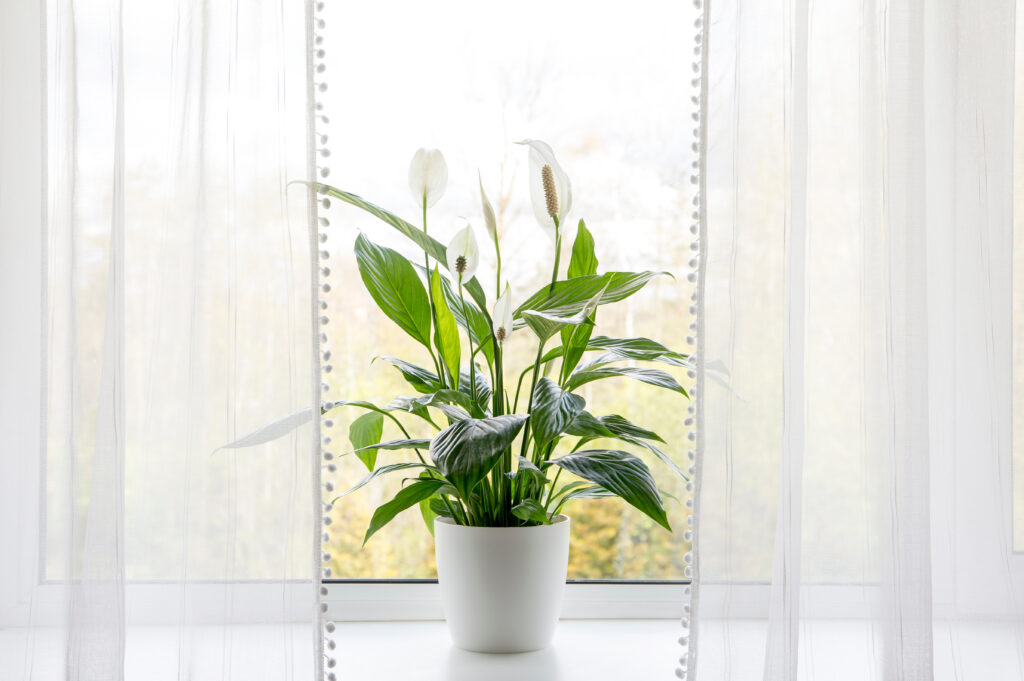
Peace Lily (Spathiphyllum)
This gorgeous variety of lily is simple to care for and very useful in our homes, helping to remove alcohols, acetone, trichloroethylene and more from the air. However, it’s vital to store this plant up high as it is harmful to cats and dogs.
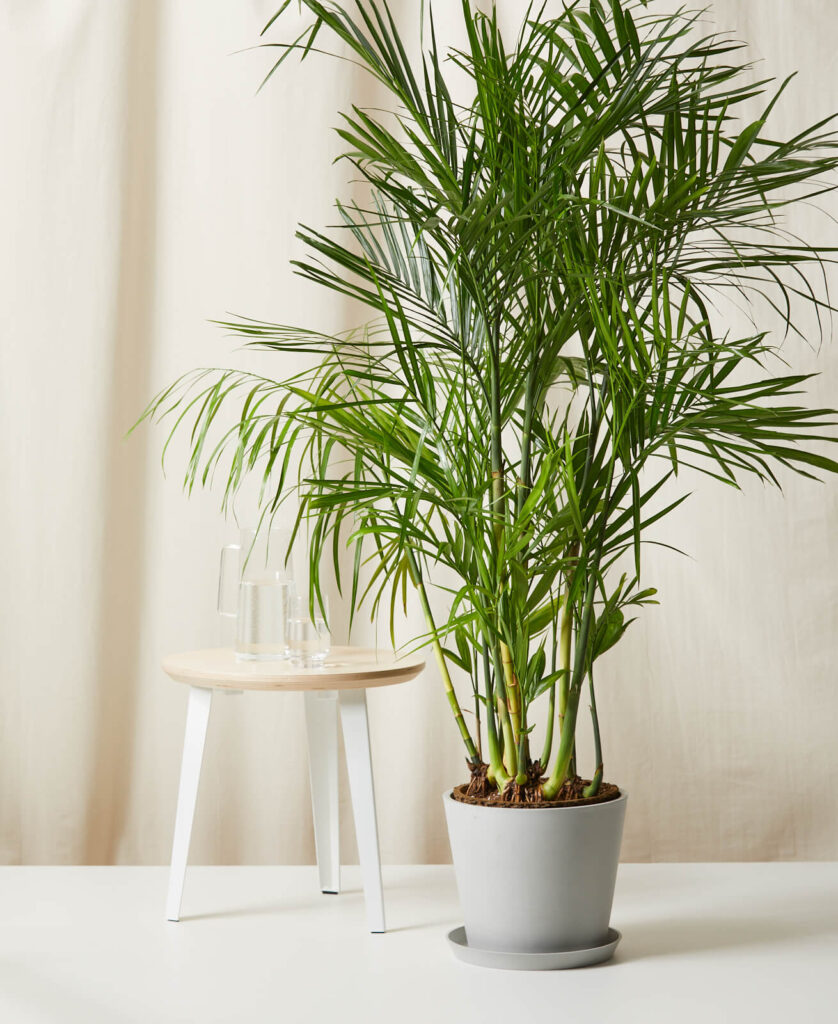
Bamboo Palm (Chamaedorea seifrizii)
These small trees can grow up to six feet when well maintained, while also ridding the air of toxins. They are also moisture-inducing plants if you’re living space is dry and are more resistant to insect infestation than other palm plants.
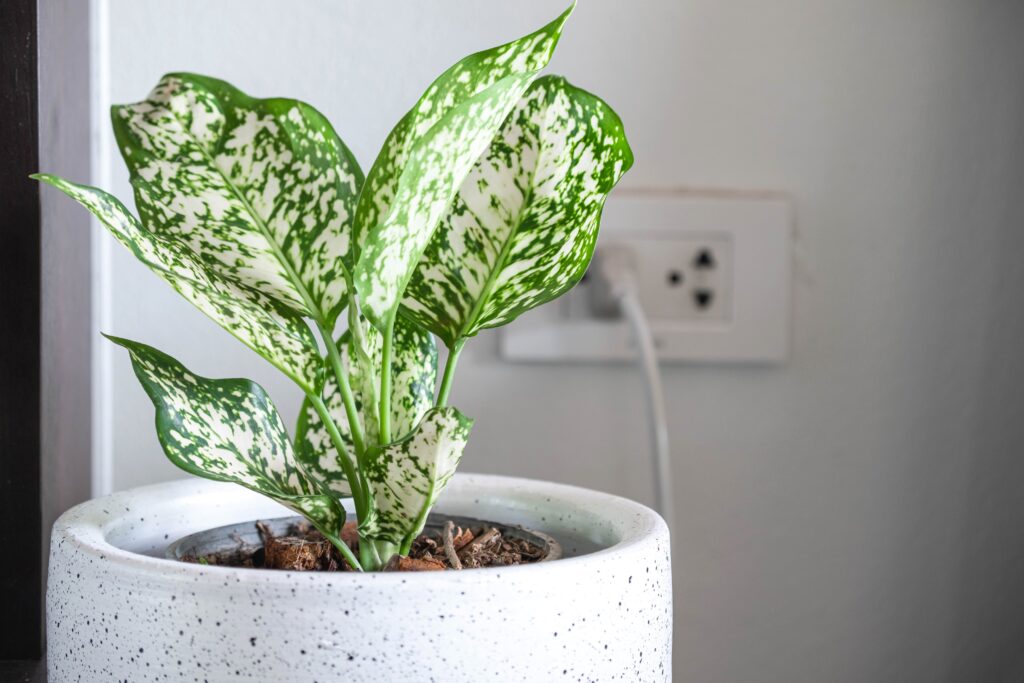
Chinese Evergreen (Aglaonema)
Distinctive by its foliage, this houseplant needs a moderate amount of care and warm temperatures to thrive and aid in purifying the air inside our homes.
If you’re exploring the world of indoor plants, it’s beneficial to know the numerous varieties that are not only beautiful but helpful. There are even more plants known to help purify the air we breathe, so we encourage you to read more and find the right plants for you and your home.



